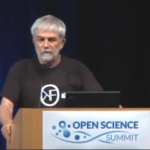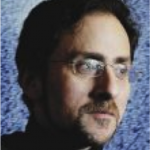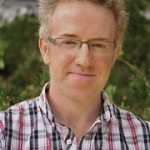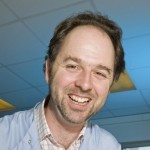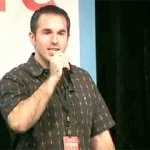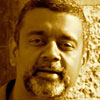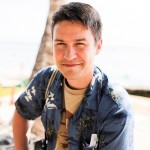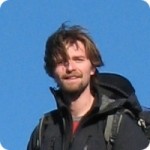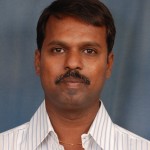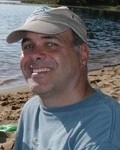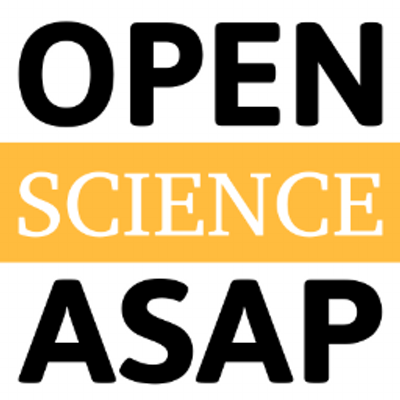We’re a global network of researchers, librarians, students, policy-makers, publishers, data-curators, coders, entrepreneurs, activists and citizens who believe that open science is better science. We volunteer our time and expertise to develop projects, advocate openness and foster a core community of open scientists.
Our Global Network
Our Coordination Team
Our Advisory Board
Meet some members!
Our colleagues in open science
Contact us
We work openly! Find out more on the wiki
The Global Network
Our Local Groups List is here
The Team
Advisory Board
Peter Murray-Rust
Peter is a molecular informatician with a focus on content mining and is co-creator of the Chemical Markup Language (CML).
He has long been a pioneer of data exchange and information-mining in the chemical sciences and was a founding member of the OKF Open Science Working Group, as well as sitting on the main OKFN advisory board.
Sarita Albagli
Sarita is a sociologist and earned her doctorate in Geography. She is currently a researcher at the Brazilian Institute of Information in Science and Technology (Ibict), and teaches in the Graduate Programme in Information Science. She is coordinator of the Interdisciplinary Laboratory in Information and Knowledge, and her present research focuses on the transformation in modes and practices of collective production of science, technology and innovation.
Francois Grey
Francois is passionate about advancing Open Science, and is Director of the Citizen Cyberscience Centre which he founded with the support of the Shuttleworth Foundation.
Francois is a physicist by training, with a background in nanotechnology and a strong interest in science communication. He spent six years at CERN, followed by time at Tshingua University in China where he helped set up the first volunteer computing projects in China, CAS@Home and Computing for Clean Water project. He is currently teaching on NYU’s Interactive Telecommunications Programme and continuing work to expand various citizen science projects worldwide.
Mat Todd
Mat Todd is a chemist in the School of Chemistry, The University of Sydney.
His research interests include the development of new ways to make molecules and he has a significant interest in open science, and how it may be used to accelerate research, with particular emphasis on open source discovery of drugs and catalysts.
He is Chair of The Synaptic Leap, a nonprofit dedicated to open biomedical research. In 2011 he was awarded a NSW Scientist of the Year award in the Emerging Research category for his work in open science. He is on the Editorial Boards of PLoS One, Chemistry Central Journal and ChemistryOpen. He is currently the science lead on the Open Source Malaria project.
Cameron Neylon
Cameron Neylon is Advocacy Director for the Public Library of Science, a research biophysicist and well known agitator for opening up the process of research.
He speaks regularly on issues of Open Science including Open Access publication, Open Data, and Open Source as well as the wider technical and social issues of applying the opportunities the internet brings to the practice of science. He was named as a SPARC Innovator in July 2010 for work on the Panton Principles and is a proud recipient of the Blue Obelisk for contributions to open data. He writes regularly at his blog, Science in the Open.
Joseph Jackson
Joseph P. Jackson III is a philosopher, entrepreneur, activist, and organizer in the Open Science Movement. His goal is to assist the emergence of a new political-economic paradigm that enables sustainable prosperity for all based on distributed, decentralized, appropriate technologies, fully hackable and modifiable to suit the needs of users.
He is the CEO of LavaAmp Inc. and the co-founder of BioCurious, a novel community lab effort in the Bay Area.
Puneet Kishor
Puneet is Project Coordinator for Science and Data at Creative Commons. His extra-curricular engagements include developing tools and techniques for management and analysis of earth sciences data at the University of Wisconsin-Madison, and research at the National Academies/CODATA on policy issues related to citation and licensing mechanisms for digital scientific information.
Puneet has worked, in order, at a rural development NGO in New Delhi, the World Bank in Washington DC, a for-profit GIS consulting company, and the University of Wisconsin-Madison. He is happy to be back to his NGO roots at CC.
Brian Glanz
Brian founded and directs the Open Science Federation and is co-founder of the US chapter of the Open Knowledge Foundation.
His background is in web software and he co-organizes The SciFund Challenge, ScienceOnline Seattle, Science on Tap, the Seattle Science Festival and much more!
Meet the Members
The working group has over 700 mailing list members. While it’s not possible to introduce you to all of them, several kindly agreed to talk about their interests in open science to give a flavour of the breadth of the working group.
Carl Boettiger
What’s your background?
I received my bachelor’s in physics from Princeton, currently I am PhD student at UC Davis, working on regime shifts in ecology & evolution.
What got you interested in open science?
Theorists aren’t often taught to to keep lab notebooks. After years of scribbling on the nearest napkin or chalkboard and acquiring a good intuition for which tables and other surfaces display chalk well, I started to realize my need for a less ephemeral way to keep track of my research (if I had a better memory maybe I would have made it as a biologist earlier in my career). I turned to the internet oracle for answers, and stumbled into a videocast from Cameron Neylon about his open lab notebook. Experimental chemistry is a different as possible from my own workflow, but it was obvious that electronic & web-based tools were offering him something a chalkboard would never do.
Trying to learn how to create my own notebook meant reading Cameron Neylon, which soon meant friendfeed’s science 2.0 / life-scientists room & later twitter. Reading these ideas, it sounded like these notebook systems had all these additional benefits beyond having a search function, that worked to their fullest capacity when open. I wanted the full experience, the full benefit. I wanted to see if it was true. I decided to try out an open lab notebook. It’s accelerated my career, expanded my network, improved the quality and reach of my work, at times intrigued, puzzled, and frightened my colleagues, and has since inspired others to similar endeavors. Keeping an open lab notebook intensifies the things I most enjoy in research and keeps me from taking myself too seriously.
In your opinion, what is the most exciting thing that open science makes possible?
Science. Someone once said, science is like a parachute: It only works if it is open. Sure, there’s different degrees of openness — Galileo announced his discoveries in ciphered anagrams — but until you share your discoveries your just a funny crank in the attic. Today we prize the public communication of the result over primacy of the discovery itself. Greater openness makes science advance more quickly, more accurately, and with greater impact to the rest of the world. The innovations which served this function in previous centuries were never designed to scale to the pace, breadth, and depth of science practiced across the globe today. The open science movement explores and creates practices for sharing science that can scale and adapt to these needs.
Sridhar Gutam
What’s your background?
I am a Plant Physiologist and I am into Agriculture Research Service (ARS) (of Indian Council of Agricultural Research [ICAR], New Delhi ). Currently I am working as Senior Scientist (Plant Physiology) at Central Institute for Subtropical Horticulture (CISH) , Lucknow an constituted establishment of ICAR.
What got you interested in open science?
I started following IPR issues in Research since my joining in ARS in 2004 and was very much convinced with the thoughts and opinions of Open Access and Biological Open Source and started practicing & advocating Open Access among my peers by gaining knowledge from various online fora.
In your opinion, what is the most exciting thing that open science makes possible?
In my opinion, its individual interest and commitment to the science for people which can only make open science happen. However, policy issues of the research managers, Universities and Government influence the science to progress by Open Science approach.
Matt Jones
What’s your background?
Basically, ecological informatics, focusing on data management, data integration, analysis and modeling in support of synthetic science. More details here in my bio.
What got you interested in open science?
The National Center for Ecological Analysis and Synthesis is predicated on the re-use of existing data for synthesis that advances our knowledge of ecological and environmental systems. Open Science has been a natural thrust of our institute since its inception because of this reliance on other people’s data.
In your opinion, what is the most exciting thing that open science makes possible?
Open science enables new scales of collaboration that accelerates science in ways that were unimaginable just a few years ago. I am excited about the possibilities for accelerating synthetic science through the synergies among open data, open source, and open access publications.
Other Open Science Organisations
This is an incomplete list of other open science communities and organisations you might like to get involved with:
Open Science Federation
Open Science Federation run @openscience on Twitter, the Open Science Community in Google+, and co-organise online communities such as the Open Notebook Science Network, and The SciFund Challenge for crowdfunding.
HackYourPhD
HackYourPhD is a community created in France in January 2013 by Célya Gruson-Daniel and Guillaume Dumas. It gathers various profiles (researchers, PhD students and students, entrepreneurs, designers…) around the issue of Open Science through collaborative content curation, events and community projects.
Creative Commons
Creative Commons focus on making copyrighted material legally open through the use of ‘copyleft’ licenses. If you’re into law and policy, this is a great organisation to stay in touch with, especially through their international network of affiliates. Puneet Kishor, the CC science lead is an active member of the working group and member of the Advisory Board.
Mozilla Science Lab
Mozilla Science Lab is helping a global network of researchers, tool developers, librarians and publishers collaborate to further science on the web. They run the Collaborate project bringing developers and researchers together around selected projects and also organise a perenially popular track at MozFest. They run a monthly open science call for US/EU timezones which we thoroughly recommend and they host a popular forum.
SPARC
The Scholarly Publishing and Academic Resources Coalition are a catalyst for change towards open access across scholarly disciplines. They organise many activities, including hosting the Right to Research Coalition, a a highly active student open access advocacy group. They led the organisation of OpenCon 2014 bringing together early career researchers with an interest in open and continue to support growing initiatives and activism around open access and open science.
CodersCrowd
CodersCrowd is a community of social coders who share and review each other’s code. They aim to unlock crowd intelligence to solve biological problems using bioinformatics, so if you’re an open scientist of the coding variety you might want to get involved!
Open Science as a Practice
Open Science as a Practice is a platform and community focused on practicing open methods in research and educating people about open science, primarily in German. Anyone can contribute and they create an excellent monthly open science round-up to keep you up to date.
Public Lab
Public Lab is a community where you can learn how to investigate environmental concerns. Using inexpensive DIY techniques, they seek to change how people see the world in environmental, social, and political terms. They have mailing lists to discuss civic science, organise events and allow you to post your open research. Most activities are happening in the US but you can set up local groups and projects.
There are plenty missing here, if your community is not listed, please get in touch to let us know (details below).
Contact Us
You can contact the working group coordinators on science@okfn.org or the whole community on the open-science mailing list.

